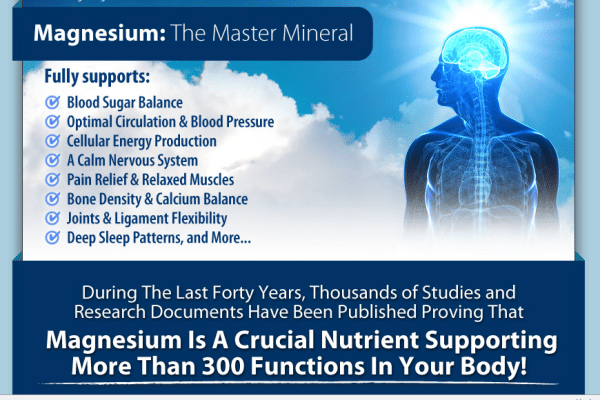The Interaction Between Magnesium & Testosterone In Regulating Physical Function In Men.

Why Should You Always Take Magnesium While On Testosterone
Undernutrition and anabolic hormonal deficiency frequently coexist in older individuals determining an increased risk of mobility impairment and other adverse outcomes. Mineral evaluation is an essential determinant of physical performance. In particular, there is evidence that magnesium exerts a positive influence on anabolic hormonal status. This is including Testosterone in men.
Magnesium is a cofactor in more than 300 enzyme systems that regulate diverse biochemical reactions in the body. This is including protein synthesis, muscle and nerve function, blood glucose control, and blood pressure regulation. Magnesium is required for energy production, muscle contraction, blood coagulation, nutrient metabolism especially carbohydrate and bone/cell formation. The most represented store of magnesium in humans is in the bones which accounts for roughly 64% of total magnesium. The remaining amount is located in the intracellular (34%) and extracellular spaces (1%). The intracellular magnesium concentration is fundamental to ensure the most critical cellular and metabolic activities.
More On Magnesium
Magnesium And The Aging Process
During the aging process, the body energy delivery system could be impaired because of the decline in physiological reserves and the disruption of metabolic pathways. As a result sarcopenia (loss of muscle cells) may arise. Physiological, psychological, and hormonal systems interact to determine the energy need. Macronutrients are essential to provide the body structure to perform work. Minerals are fundamental to enable the use of macronutrients for all physiological processes. An insufficient quantity if magnesium nutrient intake is one of the multiple causes of loss of muscle mass, decreased physical performance, and adverse outcomes.
Anabolic Hormones
Anabolic hormones, whose levels decline with age, play an essential role in maintaining the optimal body energy delivery. Frequently there is a simultaneous anabolic hormonal deficiency in Testosterone, DHEA, estradiol, growth hormone-Insulin-like Growth Factor-1. This also includes Vitamin D, which is part of various hormonal dysregulations. These hormones interplay in ensuring overall anabolic states and induce cell activation together with exercise and muscle hypertrophy. The simultaneous presence of low levels of Testosterone, together with DHEA and IGF-1, has a substantial effect on mortality in older men.
Conclusion
Data confirms that hormonal optimization therapies along minerals like magnesium, selenium, and zinc improve body composition and physical performance. Male individuals with impaired magnesium status and Testosterone deficiency (accurately assessed) could benefit from magnesium and Testosterone treatment. Testosterone treatment heavily targets physical and mental performance. In addition, long-term use of testosterone depletes magnesium levels, so you must make sure to supplement your testosterone therapy with at least magnesium to avoid any disruption in your metabolic and hormonal pathways.

